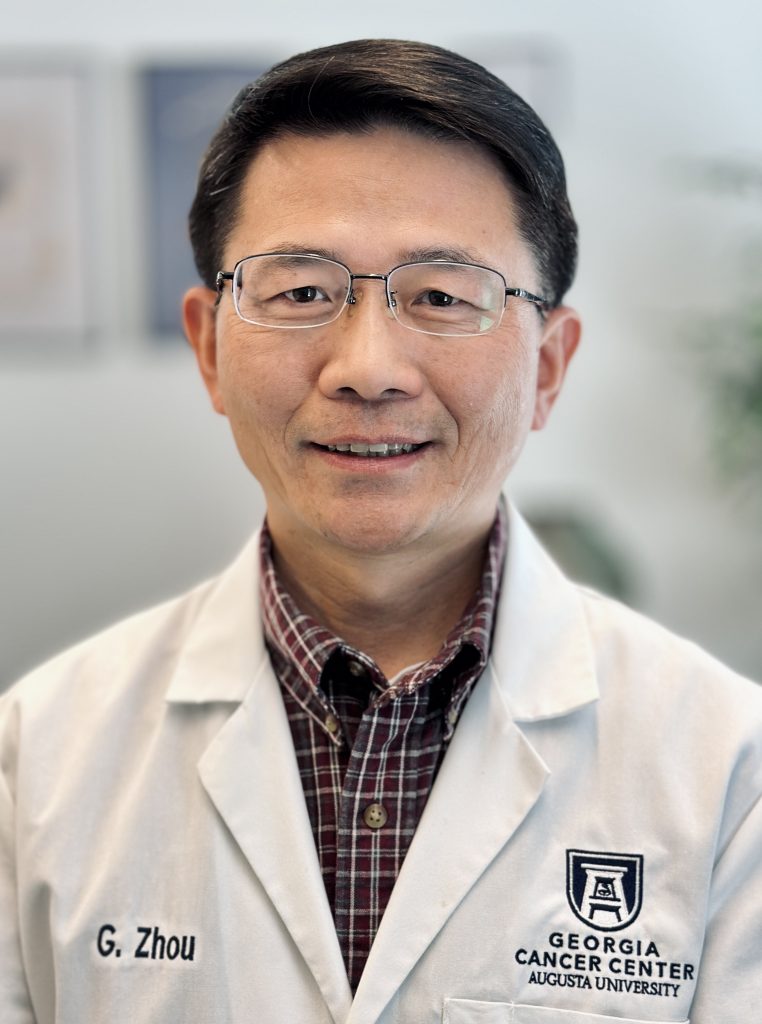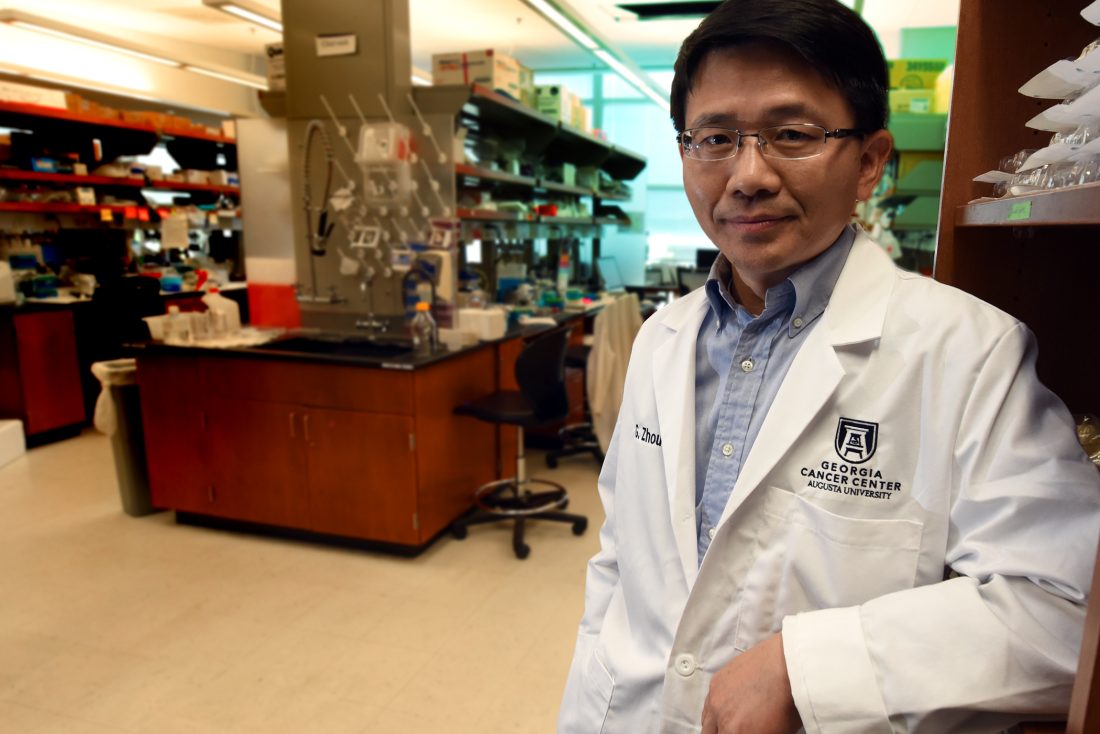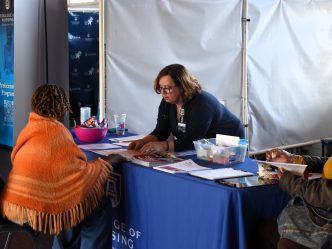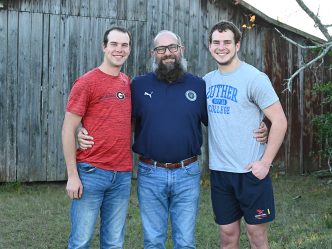When you think of salmonella, the first thing that comes to your mind most likely has nothing to do with cancer treatments. That is not the case for Gang Zhou, PhD, the leader of the Cancer Immunology, Inflammation and Tolerance research program for the Georgia Cancer Center.
“For many years, it has been known that certain bacteria, including salmonella, are inherently immunogenic, meaning they can be harnessed to stimulate the immune system and improve cancer immunotherapy,” said Zhou, who is also a professor of medicine and biochemistry and molecular biology in the Medical College of Georgia at Augusta University.

Wild-type salmonella are best known as a cause of foodborne illness, leading to diarrhea, fever, cramps and could be life-threatening in severe cases; however, when genetically modified for therapeutic use, salmonella can remodel the tumor microenvironment to spark potent antitumor immune responses without causing illness.
The tumor microenvironment, the ecosystem of immune and stromal cells surrounding a tumor, is often hijacked by cancer cells to avoid detection and suppress immune attack. Engineered therapeutic salmonella can reprogram this environment, exposing cancer cells to tumor-killing T lymphocytes and thus boosting the effectiveness of immune-based therapies.
Among today’s immune-based therapies, cancer treatment using T cells carrying chimeric antigen receptors, also known as CAR-T, has emerged as a promising strategy. This type of immunotherapy uses the patient’s own T cells for genetic engineering to express CARs, which enable the T cells to find and attack cancer cells.
After expanding these “designer” T cells in the laboratory, these T cells are infused back into the patients. This type of therapy has achieved great success in some patients and received approval by the FDA for the treatment of several types of blood cancer, including B-cell lymphoma and multiple myeloma. However, CAR-T therapy has limited success in many other types of cancer, especially solid tumors.
Zhou’s project, Enhancing the efficacy of CAR-T therapy using engineered immunogenic Salmonella strains, hopes to change that.
“The overall goal of our project is to provide proof-of-concept for approaches that utilize immunogenic salmonella strains in combination with CAR-T therapy to enhance patient outcomes,” he said.
In a recent study, Zhou’s team showed that a modified strain of salmonella can selectively colonize tumors, promote dendritic cell maturation and enhance the efficacy of CAR-T therapy in a murine lymphoma model.
Building on this, the team will investigate how the tumor microenvironment is reprogrammed by this salmonella strain to improve the outcome of CAR-T therapy. This phase of work, including comprehensive immunological analysis using the cutting-edge single-cell RNA sequencing technology, will take about half a year to complete. In the second phase of the project, they will expand their studies to include solid tumor models that remain resistant to current CAR-T approaches.
“Research like this can be risky because it explores untested concepts,” Zhou said. “I am grateful to Paceline for this critical funding so that my team and other researchers here at the Georgia Cancer Center can pursue new treatment avenues.”
Since 2019, Paceline has raised nearly $1.7 million for innovative cancer research and has funded over 30 researchers and their projects at the Georgia Cancer Center.
This year, Paceline is expanding its signature fundraising event, PaceDay, to make supporting cancer research more accessible for all, with walk and run options in addition to the bike riding option. PaceDay 2025 is scheduled for Oct. 5. Sign up by visiting the PaceDay website.
Discoveries at Augusta University are changing and improving the lives of people in Georgia and beyond. Your partnership and support are invaluable as we work to expand our impact.
 Augusta University
Augusta University




